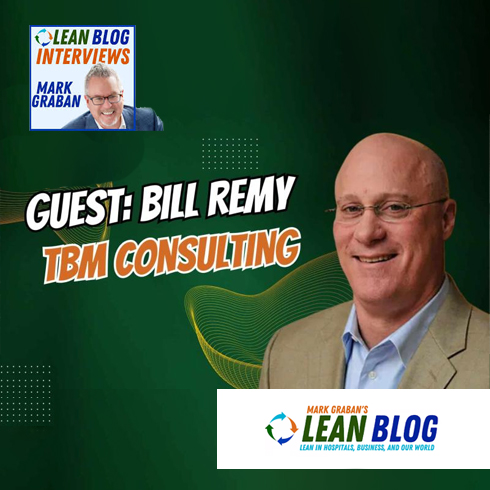The current economic environment has presented unique challenges for Private Equity firms, particularly with elevated interest rates.
According to KKR Insights Global Macro and Asset Allocation team, interest rates in Europe and the United States will continue to rise in the coming years, driven by the transition to renewable energy, labour shortages due to ageing populations, and increasing political tensions.
This new financial landscape has extended holding periods from the traditional four years to as many as twelve. However, these challenges can be transformed into opportunities with the right strategies and partners to optimise value creation.
The Challenges of High Interest Rates
High interest rates impact the cost of capital, making it more expensive for Private Equity firms to finance acquisitions and manage debt. This financial pressure can squeeze margins and delay profitable exits. The extended holding periods require firms to maintain a focus on sustained value creation, rather than relying solely on quick flips. Additionally, the increased cost of borrowing can lead to tighter cash flows, forcing firms to re-evaluate their investment strategies and prioritise more resilient, cash-generative businesses.
In this high-interest-rate environment, PE firms must adopt a more holistic approach to value creation. While pricing optimisation and purchasing cost reduction remain essential, they are not sufficient on their own.
The Neglected Stepchild: Operational Excellence
Our recent visit to the Private Equity Insights Conference in Zurich revealed that to overcome the impact of high interest rates, PE firms primarily focus on pricing and purchasing strategies, while operational excellence often remains a secondary concern. In many cases, PE firms address operational issues by replacing top management, expecting new leadership to drive improvements. This approach can be likened to a Formula One team that expects to win by just contracting a new driver without further developing aerodynamics and engine performance.
Operational excellence is a critical, yet often underutilised, lever for value creation. It involves systematically analysing and improving internal processes, reducing inefficiencies, and fostering a culture of continuous improvement.
Here’s how operational excellence can be harnessed to optimise performance and ensure peak efficiency in value creation:
- Streamlining Workflows and Standardising Procedures. High interest rates increase the cost of capital, making it essential for PE firms to enhance operational efficiency and reduce costs internally. Operational excellence, when properly implemented, provides a sustainable path to achieving these goals. Streamlining workflows and standardising procedures can significantly improve efficiency, reducing bottlenecks in production or service delivery processes. For instance, a thorough analysis of operational steps can identify redundant actions and unnecessary delays, enabling the reorganisation of tasks to create smoother and faster processes. This can result in immediate gains in productivity and cost savings.
- Applying Lean Principles to Eliminate Waste. By applying Lean principles, firms can identify and eliminate waste in all forms—time, materials, and labour—while implementing energy efficiency measures to lower utility costs. Lean methodologies focus on maximising value by minimising waste, which translates to more efficient use of resources and a reduction in operating expenses. For example, a detailed examination of material flow can highlight excessive inventory or unnecessary movement of goods, which can then be streamlined for better efficiency. Additionally, investing in energy-efficient technologies and practices not only reduces costs but also aligns with broader sustainability goals.
- Enhancing Quality through Defect Reduction and Continuous Improvement. Enhancing quality through defect reduction and continuous improvement initiatives leads to lower costs and higher customer satisfaction. Six Sigma methodologies, which aim to reduce variability and defects, can be employed to ensure that products and services consistently meet high standards. This focus on quality not only reduces rework and waste but also enhances the reputation of portfolio companies, making them more competitive in the market. Continuous improvement fosters a culture where employees are always looking for ways to improve processes and outcomes, driving ongoing enhancements in efficiency and effectiveness.
- Investing in Employee Training and Development. Investing in employee training and development improves skills and productivity while creating an environment where employees feel empowered to take ownership of processes and suggest improvements. Well-trained employees are better equipped to perform their tasks efficiently and to identify opportunities for improvement. Programmes that encourage employee engagement and empowerment can lead to a more motivated workforce, which in turn drives better performance and innovation. For instance, regular training sessions and workshops can keep employees updated on the latest operational techniques and best practices, fostering a proactive and improvement-oriented culture.
- Utilising Automation Technologies and Data Analytics. Utilising automation technologies and data analytics further optimises performance, reducing manual labour and providing insights into operations. Automation can handle repetitive and time-consuming tasks, freeing up human resources for more strategic activities. Meanwhile, data analytics can provide deep insights into operational performance, identifying trends and areas for improvement that may not be immediately obvious. For example, predictive analytics can forecast maintenance needs, reducing downtime and preventing costly breakdowns. These technologies enable a more precise and efficient approach to managing operations, driving further gains in productivity and cost savings.
At TBM, we bring over 30 years of experience partnering with Private Equity firms globally to achieve operational excellence in any market condition or financial climate. In the past 5 years alone, we’ve identified over $2B in EBITDA benefits, serving more than 150 firms and supporting over 300 portfolio companies across various industries, including packaging, F&B, industrial, consumer, and service businesses, as well as multinational enterprises.
Our team rolls up their sleeves and works closely with operations teams, ensuring our strategies lead to impactful outcomes. We provide comprehensive support for both due diligence and ongoing portfolio company analysis, driving operational efficiency and value creation. By adopting Lean methodologies and fostering a culture of continuous improvement, we help portfolio companies reach their full potential. This approach accelerates exit strategies, enhances value creation, and consistently delivers positive results for all stakeholders.





